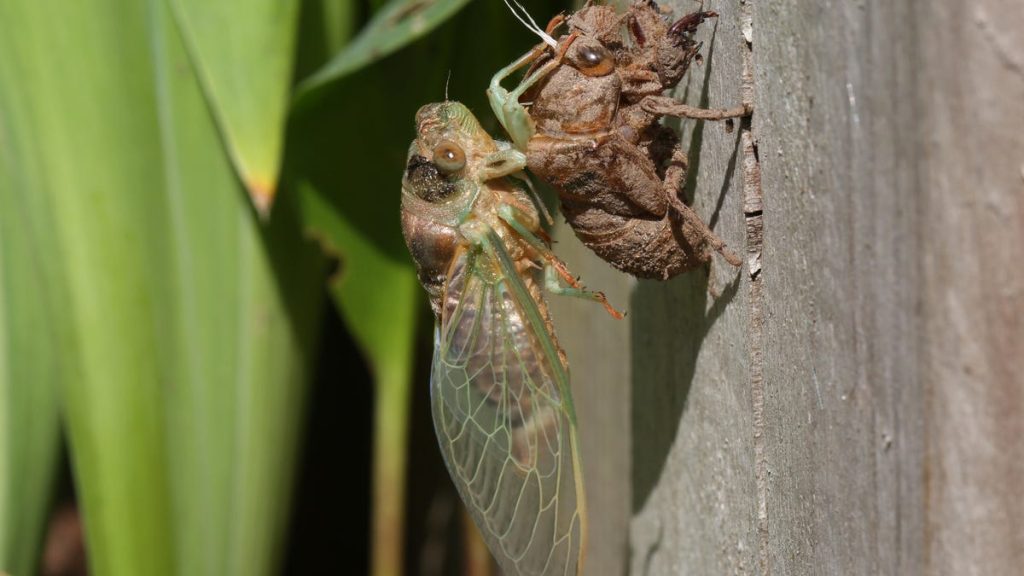My dog has a strange addiction to eating cicadas, which she then proceeds to vomit up in the living room. This behavior has been going on for the past five years, and she is now not allowed outside during cicada season without human supervision. Surprisingly, this is a common trait among many dogs, and with the upcoming massive emergence of cicadas in the US, pet owners may be concerned about the potential risks of their dogs consuming these insects. While cicadas are not venomous or poisonous, they can cause some gastrointestinal issues if consumed in large quantities, potentially leading to blockages. It is important to monitor your pet’s behavior and consult a veterinarian if you notice any abnormal symptoms.
The year 2024 will see a rare occurrence of two broods of cicadas emerging simultaneously in the US – Brood XIX (Great Southern Brood) and Brood XIII (Northern Illinois Brood). This double emergence is not a common event and last happened back in 1803. The Great Southern Brood emerges every 13 years, while the Northern Illinois Brood is on a 17-year cycle. This means that over 17 states, including Alabama, Arkansas, Georgia, and Illinois, will experience a significant increase in cicada activity from May to mid-June. Despite their loud and annoying nature, cicadas are not considered dangerous for dogs to eat, but excessive consumption can lead to stomach issues and potential blockages.
Experts advise pet owners to closely monitor their dogs for any unusual behavior after consuming cicadas, such as vomiting, depression, or excessive salivation. While most dogs may experience mild symptoms like a sensitive stomach or vomiting, it is essential to seek veterinary care if more severe symptoms persist. Keeping a close eye on your pet and seeking professional advice if needed can help ensure your dog’s health and safety during the cicada season. Understanding the risks and symptoms associated with cicada consumption can help pet owners make informed decisions and take appropriate measures to protect their furry companions.
Cicadas are harmless insects that do not pose a direct threat to pets, but their hard shells can potentially cause gastrointestinal issues if consumed in large quantities. Dogs with a taste for cicadas may need to be monitored closely during the emergence season to prevent any complications. In cases where a dog exhibits concerning symptoms like prolonged vomiting or lethargy, consulting a veterinarian is recommended. By staying informed about the behavior of cicadas and the potential risks to pets, dog owners can take proactive steps to ensure their pets’ well-being and prevent any unnecessary health issues.
The upcoming double emergence of cicadas in 2024 presents a unique situation for pet owners, with two broods of cicadas emerging simultaneously across multiple states. While this may lead to increased cicada activity in affected areas, it is important to remember that these insects are not harmful to pets if consumed in moderation. Monitoring your dog’s behavior during the cicada season and seeking veterinary advice if needed can help address any concerns and ensure your pet’s health and safety. By staying informed and prepared, dog owners can navigate the cicada emergence season with confidence and take proactive measures to protect their furry companions from potential risks.


